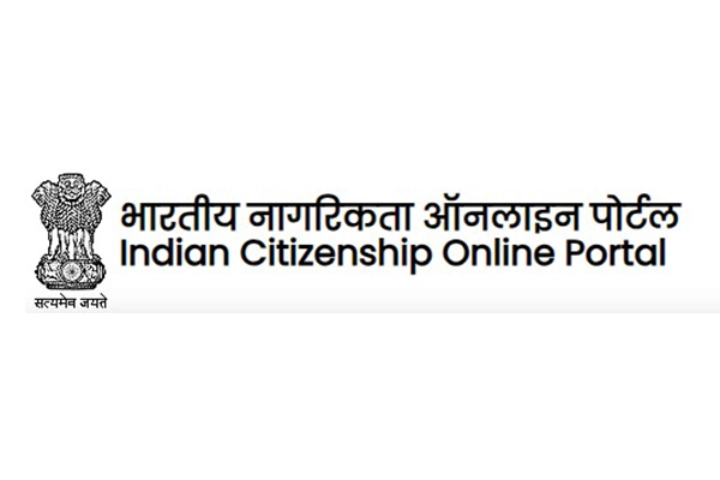

Indian citizenship portal
The Ministry of Home Affairs (MHA) on Monday provided a web portal on which eligible non-Muslim migrants from Bangladesh, Pakistan and Afghanistan fleeing religious persecution can now seek Indian citizenship.
A mobile app ‘CAA-2019’ will also be launched very soon to facilitate applications through mobile app.
Now, the persons persecuted from Afghanistan, Pakistan and Bangladesh on religious grounds of six minority communities – Hindus, Sikhs, Buddhists, Jains, Parsis and Christians– can apply for grant of Indian citizenship on portal https:/indiancitizenshiponline.nic.in.
The portal was made available on Monday night soon after the MHA notified the rules under the Citizenship (Amendment) Act, 2019 (CAA-2019), now called the Citizenship (Amendment) Rules, 2024. The rules grant Indian citizenship to these refugees who had sought shelter in India before December 31, 2014.
This is a specific portal on which the people persecuted from Afghanistan, Pakistan and Bangladesh on religious grounds can apply for Indian citizenship. All the six minority communities– Hindus, Sikhs, Buddhists, Jains, Parsis and Christians– persecuted from the three countries, who had sought shelter in India before December 31, 2014, can submit applications in a completely online mode on the web portal named “Indian Citizenship Online Portal”.
An application will be submitted to an Empowered Committee through the District Level Committee headed by a designated officer. All documents along with photographs are to be uploaded online and the applications will be processed after a background check by security agencies.
As the CAA is for undocumented people from the six communities, clutch of documents including those issued by Government authority in Pakistan, Afghanistan and Bangladesh to be uploaded by CAA applicants to get citizenship.
As per rules, the applicant will have to appear in person to subscribe the application and take oath of allegiance, failing which the district-level committee may recommend refusal.
The applicants will have to produce an “eligibility certificate” issued by a “locally reputed community institution” confirming that he or she belongs to “Hindu, Sikh, Buddhist, Jain, Parsi and Christian community and continue to be a member of the above mentioned community.
The online application process provides multiple categories under which an applicant can seek Indian citizenship. These include: (i) a person of Indian origin (ii) a person married to a citizen of India (iii) a minor child of an Indian citizen (iv) a person whose parents are Indian citizens (v) a person who or either of parents was a citizen of Independent India (vi) a person registered as Overseas Citizen of India Cardholder (vii) a person seeking citizenship by naturalisation – an adult registered as overseas citizen of India for five years, and who has been living in India for a year.
The applicant can submit any of the following documents while applying for Indian citizenship under CAA: (i) Copy of passport issued by Afghanistan, Bangladesh or Pakistan government (ii) birth certificate issued by a government authority in these countries (iii) educational certificate from a school/college/board or university in Afghanistan, Bangladesh or Pakistan (iv) identity document of any kind issued by government authorities in these countries (v) residential permit issued by Foreigners Regional Registration Officer or Foreigners Registration Officer in India (vi)any licence issued by government authorities in these three countries (vii) land or tenancy records in these countries (viii) Any document that shows that either of the parents or grandparents or great-grandparents of the applicant is or had been a citizen of these countries. In effect, any document issued by a government authority in Afghanistan or Bangladesh or Pakistan to establish that the applicant is from either of these countries is valid for the citizenship process. This applies even if the document is past its validity period.
The applicant will also need to prove that he or she entered India before the cut-off date of December 31, 2014.
The MHA on Monday notified CAA Rules, 2024 removing legal barriers to rehabilitation and citizenship to such persons, and will give a dignified life to refugees who have suffered for decades.
US President Donald Trump on Saturday (US local time) called the continuation of the trial…
Protestors in Serbia took to the streets of Belgrade and demanded an early election, as…
The Ministry of External Affairs (MEA) on Sunday strongly rejected the Pakistani Army's claims, where…
Indian Army strengthens ties with Russian Land Forces at the 4th Indo-Russian Inter-Governmental Commission (IRIGC)…
The Indo-French Joint Military Exercise SHAKTI-VIII continues to strengthen operational interoperability and mutual cooperation between…
Prime Minister Narendra Modi attended the centenary celebrations of the revered Jain spiritual leader Acharya…